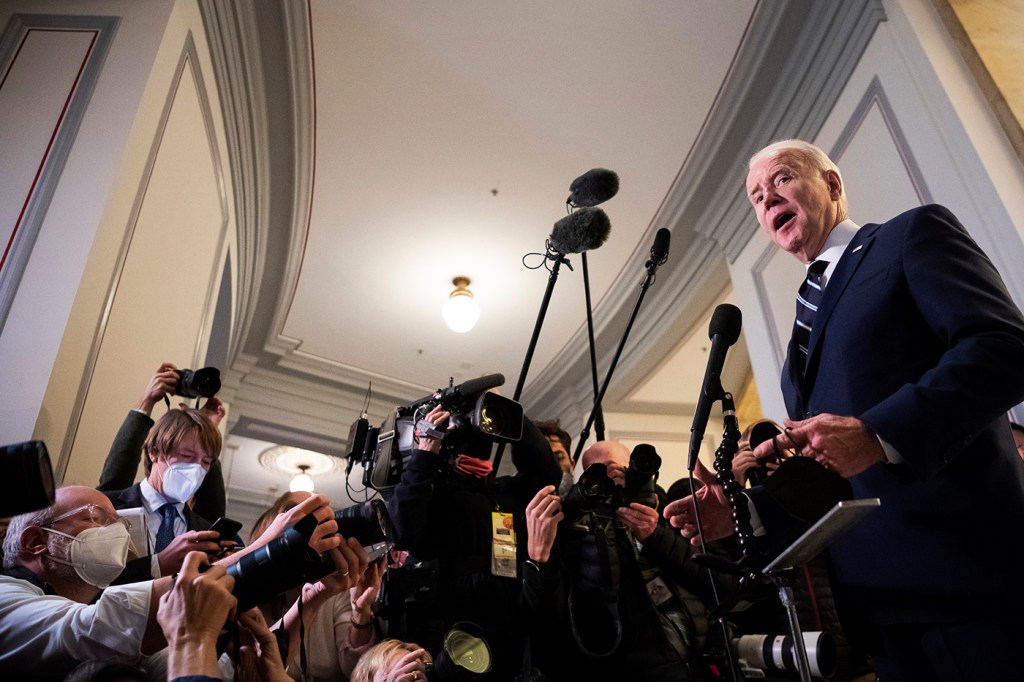What is the filibuster–and why do I keep hearing about it?

The filibuster—it’s either a “Jim Crow relic,” according to former president Barack Obama, or a longstanding “unique feature” of the Senate, counters Senate Minority Leader Mitch McConnell of Kentucky.
What is this 10-letter word that has generated untold amounts of national press stories lately and has Democrats and Republicans on Capitol Hill bickering so much?

‘Changing Senate rules is a risky strategy,’ says Costas Panagopoulos, head of the political science department. Photo by Matthew Modoono/Northeastern University
The U.S. Senate has had a tradition of allowing unlimited debate—or filibustering—which can delay or even prevent action on legislation, according to Costas Panagopoulos, head of Northeastern’s political science department and editor of American Politics Research.
“It has been used effectively to prevent action on numerous pieces of legislation over the years,” he says.
Indeed, congressional Democrats and President Joe Biden have had difficulty getting their priorities over the goal line because of it. The party’s wafer-thin majority leaves no room for error, since 60 votes are required to break a filibuster.
It’s so easy to stall legislation, in fact, that senators in the minority party—without saying a word—can simply raise their hands to object to a bill to force supporters to produce 60 votes, a near impossible feat in the 50-50 chamber. (Vice President Kamala Harris, a Democrat, presides over the Senate and casts the deciding vote in the case of a tie.)
As a result, not much deliberation is going on in an institution known as “the world’s greatest deliberative body.”
News@Northeastern sat down with Panagopoulos to get his thoughts on the filibuster and the path ahead.
What exactly is the filibuster supposed to do?
From the beginning, the U.S. Senate has had a tradition of allowing unlimited debate—or filibustering—which can delay or even prevent action on legislation. In theory, filibusters can help to protect minority views from the tyranny of the majority. It has been used effectively to prevent action on numerous pieces of legislation over the years.
Up until 1917, there was no process in place to end debate when a senator was filibustering. In that year, the Senate decided a 2/3 vote could invoke cloture, thereby bringing a filibuster to a close. In 1975, the Senate reduced this threshold to 3/5 (or 60 votes).
Whom does it help, and whom does it hurt?
At the moment, the filibuster appears to be helping Republicans, effectively the minority party (since a tie-breaking vote by the Democratic vice president tilts action in Democrats’ favor), because it allows for preventing action on legislation that Democrats can push through the U.S. House (where Democrats hold a slim majority) and that would likely be supported by the Democratic president.
The filibuster is one of the few weapons Republicans currently possess to prevent a Democratic monopoly on federal lawmaking. Of course this can change as congressional majorities and the White House occupant shift.
Democrats have all the power in Washington. Why can’t they just pass any laws they want to?
In the Senate, to invoke cloture, 60 votes are needed. So, in effect, Democrats need 60 votes to pass any legislation.
Since there are only 50 Democratic senators at the moment, Democrats effectively need 10 Republican votes to invoke cloture and end a filibuster. In an era of heightened partisanship in Congress, finding 10 Republican senators willing to join Democrats is quite challenging.
So 60 votes are needed to pass most bills. How is it even possible to get 60% of the Senate to agree on anything?
At a time of little bipartisanship, reaching across the aisle to find 10 senate votes is, while not impossible, an uphill battle.
If the party in charge tinkers with the filibuster, could it come back to haunt them?
Changing Senate rules is a risky strategy. While it may be helpful to Democrats now, it may hurt them later if they lose the Senate majority but Republicans fail to secure at least 60 seats in the chamber.
The Senate Democratic leader has drawn a line in the sand with Republicans – stop stalling on the voting rights bills or else. How do you think this will play out in the days ahead?
Such hardline tactics can work, but they’ve also backfired in the past.
Would eliminating the filibuster make polarization worse, or could it compel senators to engage in open, honest debate?
If Democrats adopt rules that allow them to call the shots on legislation in the Senate while they have a razor-thin majority, Republicans could view this as an affront, not to mention a significant departure from a tradition honored by both major parties for decades, causing a backlash that results in even higher levels of polarization, mistrust, and even less of a willingness to cooperate and find common ground in Congress.




